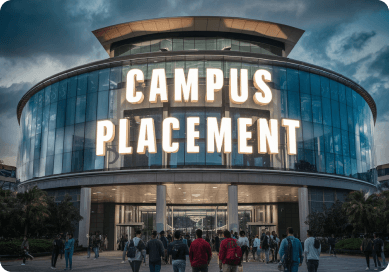Enter OTP



Versailles, France

Versailles, France

Cost Of Living

Undergraduate Fees International Students

Post Graduate Fees International Students

Versailles Saint-Quentin-en-Yvelines University offers strong interdisciplinary programs that connect economics, ethics, environment, and sustainable development. It stands out for combining technical and social sciences with real-world relevance. Students can apply for financial aid between 15 January and 30 April, based on income, number of dependents, and distance from campus. There’s additional support for those preparing for competitive public service exams. The university also facilitates state-backed student loans with no guarantor needed. This focus on both academic depth and practical support makes UVSQ a well-rounded choice for higher education.
William Martinet, born in 1988, is a French politician affiliated with La France Insoumise. After studying at UVSQ, he e... View More
William Martinet, born in 1988, is a French politician affiliated with La France Insoumise. After studying at UVSQ, he entered the political arena and was elected in 2022 as the deputy for Yvelines’s 11th constituency in the National Assembly. Martinet has since focused on social justice, housing rights, and environmental concerns. His UVSQ background provided a solid foundation in public policy and political science. He leverages that knowledge to navigate legislative debates and intra‑party coordination, while advocating grassroots engagement and policy innovation across his constituency. Martinet represents how UVSQ alumni move into national leadership roles View Less
Kilien Stengel, born in 1972, is a gastronomic author, restaurateur, and food researcher. After attending UVSQ, he explo... View More
Kilien Stengel, born in 1972, is a gastronomic author, restaurateur, and food researcher. After attending UVSQ, he explored culinary arts across prestigious venues including Relais & Châteaux hotels, Georges V in Paris, and international establishments. He authored numerous cookbooks and thought‑provoking essays on gastronomy, culture, and food education. Blending academic insight with hands‑on experience, Stengel has been a keynote speaker at culinary festivals and academic forums, championing food as cultural heritage. His multifaceted career spans teaching, writing, research, and restaurant management—a testament to UVSQ’s interdisciplinary learning that can bridge social sciences and applied culture. View Less
Sylvie Faucheux (born 1960) is a leading figure in environmental economics and sustainable development. Joining UVSQ as ... View More
Sylvie Faucheux (born 1960) is a leading figure in environmental economics and sustainable development. Joining UVSQ as a professor in 1994, she founded the Center for Economics, Ethics, Environment, and Sustainable Development—pioneering integrated research across moral philosophy, economics, and ecology. In 2002, Faucheux became UVSQ’s president and led the university until 2012, steering academic growth and research partnerships. She chaired national and European sustainable development boards, won honors including Chevalier of the Legion of Honor and Palmes Académiques, and influenced policy at local and national level. Her career reflects UVSQ’s values: academic depth, ethical inquiry, and real‑world impact. View Less
Versailles Saint-Quentin-en-Yvelines University boasts a modern, eco-friendly campus with state-of-the-art research labs, media centers, and digital learning spaces. Spread across multiple locations including Versailles, Saint-Quentin, and Guyancourt, the infrastructure supports both academic excellence and student well-being. The university includes high-tech lecture halls, well-equipped libraries, and specialized buildings for science, humanities, and engineering programs. It also features innovation hubs and incubators to support startups and research collaborations. The campus is accessible and connected, with excellent public transport links. Overall, the infrastructure reflects a strong focus on sustainability, technological advancement, and interdisciplinary learning.
Versailles Saint‑Quentin‑en‑Yvelines University buzzes with vibrant student life, offering a wide range of clubs, sports teams, and cultural societies across its campuses. Events like themed fairs, open‑air concerts, and film screenings foster strong community connections. With modern student unions, cozy hang‑out areas, and on‑campus cafes, there’s always a space to chill or connect. Support programs like peer mentoring and buddy systems help newcomers blend in quickly. The proximity to Versailles and Paris opens doors to internships, exploration, and social outings. Balancing study, leisure, and personal growth, student life at UVSQ is engaging, social, and dynamic.


Versailles Saint‑Quentin‑en‑Yvelines University provides a robust career services platform through its Relations Entreprises office, connecting students with internships, apprenticeships, and full-time job opportunities. They organize regular career fairs, employer visits, and informational sessions with HR professionals, offering industry insights and networking opportunities. Personalized coaching is available for CV writing, interview preparation, and career counseling—tailored to each student’s field and goals. Alumni mentoring programs facilitate real-world guidance from former students now working in their chosen sectors. The university also supports employer-sponsored competitions, hackathons, and project collaborations to boost student visibility. Overall, UVSQ’s career services blend practical exposure, strategic guidance, and strong employer engagement to launch students into the workforce.
The below information is required while
completing the university application :
essential documents you’ll typically need when applying to a Bachelor’s program (Licence) at UVSQ – part of Université?Paris?Saclay:
Online application (Parcoursup or eCandidat)
• If you’ve got a French or EU baccalauréat, apply through Parcoursup.
• For international applicants or others, use eCandidat. These platforms handle your academic info and program choices.
High School Diploma and Transcripts
Submit your secondary school diploma (e.g. baccalauréat or equivalent) and full grade transcripts. For entry into later years (L2/L3), you’ll need university transcripts too.
**Language proficiency proof**
Depending on the language of instruction:
• French learners need DELF/DALF/TCF
• English courses may require IELTS/TOEFL/PTE. Native-level or prior instruction may exempt you—but you’ll need documentation.
Motivation Letter (Lettre de motivation)
Explain why you’re applying: your interests, goals, and suitability for the program. It helps distinguish you beyond just grades.
Passport or National ID + Photographs
A clear copy of your passport (or national ID for EU students) and recent passport-sized photos—for identity verification and visa/travel formalities.
Proof of Financial Means & Visa Documentation (for Non-EU Applicants)
You may need to provide bank statements or a financial support declaration. Once accepted, you’ll also need visa-related documents, health insurance, and proof of socio-economic support.
UVSQ connects students and employers through its dedicated alumni and enterprise relations platforms, where companies can post internship, apprenticeship, and job openings for UVSQ students and recent graduate. The alumni network is active and free for employers to use, helping them access qualified candidates who know UVSQ training and culture. Companies in sectors like industry, digital, research, health and public services regularly recruit via these channels . UVSQ’s Relations Entreprises office facilitates employer branding events, management forums and recruitment fairs on campus. Firms also benefit from co‑innovation projects, R&D collaborations or hosting doctoral students, leveraging UVSQ’s lab and platform network. The result: a pipeline from student to intern to employee that’s structured, supported, and employer‑driven.



Versailles Saint-Quentin-en-Yvelines University has earned global recognition in fields like atmospheric and earth sciences, ranking among the top 700 universities worldwide. It collaborates with top research bodies like CNRS, INSERM, and CEA, driving cutting-edge work in climate science, public health, and complex systems. As a founding member of University Paris-Saclay, it plays a key role in advancing French scientific excellence. Its polar and environmental research, led by the OVSQ institute, has global impact. Faculty members have received prestigious national awards, including the Irène Joliot-Curie Prize. The university’s labs regularly lead major European projects in nanotech, eco-innovation, and cybersecurity.


In December 2024, Université Paris‑Saclay—of which UVSQ is a core member—was ranked as the number-one sustainable university in France and 39th worldwide in the QS Sustainability Ranking . UVSQ contributes with 36 degree programs and 47 modules focused on climate and environmental adaptation, eco-friendly campus operations, student-led sustainability projects, and academic integration of environmental ethics—demonstrating a strong institutional commitment to ecological and social
According to UArctic and Shanghai index data, UVSQ ranked among the global top 601‑700 universities in the 2022 ARWU list, achieving an outstanding 13th position worldwide in Atmospheric Sciences and 29th in Earth Sciences . That placement reflects UVSQ’s concentrated strength in climate, environmental and polar research, especially through its observatory (OVSQ), LATMOS, LSCE labs, and Arctic studies programs.
UVSQ took a leading role as a founding partner in creating Université Paris‑Saclay, integrating with premier institutions like CNRS, CEA, École Polytechnique, and more. In January 2025, UVSQ will be fully merged into Paris‑Saclay, marking a major institutional milestone. This ensures greater international visibility, access to more resources, and involvement in cutting‑edge research platforms. The integration enables joint doctoral schools, cross-university Master’s tracks, shared labs, and coordinated innovation strategies—lifting UVSQ into the top tier of global academic clusters.
By 2025, UVSQ operates 39 research units and labs in close partnership with CNRS, CEA, INSERM, Institut Pasteur, INRIA, INRAE, ONERA and others .
UVSQ contributes to materials science breakthroughs—especially through labs like LATMOS and LSCE—and its integration into the Paris‑Saclay ecosystem that includes C2N, one of France’s major nanoscience laboratories . Its work influences fields from photonics and optoelectronics to porous materials, drug delivery, and quantum photonics, enabling France’s competitiveness in strategic materials innovation.
From 2017 through 2025, UVSQ labs have led or partnered in over 25 European research consortia under Horizon 2020 / Horizon Europe. Projects include NUNATARYUK (Arctic permafrost), CoRoB‑X (robots in extreme environments), FirEUrisk (wildfire risk management), ENVRI FAIR (climate infrastructure), and GoGreenRoutes (urban resilience)
In 2016, Nathalie Carrasco—professor of planetary atmospheric chemistry in LATMOS—won the Irène Joliot‑Curie Young Scientist Prize for her work on Titan’s atmosphere and prebiotic chemistry . She was later named Chevalier of the National Order of Merit (2017). Her individual recognition underscores UVSQ’s faculty excellence and deep engagement in planetary science, international space missions, and outreach.
UVSQ has been a visible leader in Arctic research since launching its Masters in Arctic Studies in 2010, and by joining the University of the Arctic network in 2011. Its researchers—nearly 80 of them—work on polar science, climate adaptation, and sustainable development in the Arctic
UVSQ has secured involvement in nearly twenty Innovation and Future Investment (PIA) initiatives funded by the French government, spanning health cohorts like Constances and i‑Share, energy transition platforms like Vedecom, digital heritage (Patrima Labex), and accessibility tech (Handimedex) .
In 2009, UVSQ inaugurated the Versailles Saint‑Quentin‑en‑Yvelines Observatory (OVSQ), dedicated to climate change, atmospheric research, and space observation .
Versailles Saint-Quentin-en-Yvelines University (UVSQ) is known for its strong focus on innovation, research, and interdisciplinary collaboration. As part of the University of Paris-Saclay, it contributes to world-class research in climate science, environmental sustainability, materials science, public health, and space sciences. UVSQ hosts several renowned laboratories and research centers across its campuses. It actively partners with industries and public institutions for R&D, tech transfer, and doctoral training. Students and researchers often work together on co-innovation projects tackling real-world challenges. This deep integration of research into academics fuels both intellectual growth and societal impact.
In March 2025 UVSQ‑SAT NG, the second-generation nanosatellite from UVSQ’s LATMOS team, launched aboard SpaceX’s Falcon 9. Building on the original UVSQ‑SAT, this satellite captures climate‐related data like atmospheric composition and greenhouse gas variations. As part of the first university‑run constellation for climate observation within Université Paris‑Saclay, it strengthens Earth‑system science and supports CNES and ESA studies. The project reflects UVSQ’s deep strength in space instrumentation, interdisciplinary science, and innovation for real‑world environmental monitoring
Among the latest inventions listed for 2024 is an automated docking station for spectrometers, coupled with a measurement method. This system streamlines analytical workflows and improves precision in lab instrumentation. It reflects UVSQ’s ongoing development of technical platforms and research tools—empowering both academic labs and industry partners with sophisticated hardware solutions
Developed by UVSQ researchers, Oligofeed is a molybdenum‑based food supplement aimed at combating bee mortality from Varroa mites. First publicly recognized in 2023, the formulation increases honey yield and reduces winter losses for beekeepers. Its inventors earned the Grand Prix at the Geneva Invention Fair and the INPI‑France gold medal. Commercialization is underway via UVSQ‑backed startup Oligofeed, supported through Paris‑Saclay’s tech‑transfer company. The invention combines chemistry, ecology, and sustainable agriculture to address a critical pollinator decline issue
A broader follow‑up food supplement patent application filed in November 2023 proposes molybdenum complex solutions to protect bees and larvae from infestation, improving hive survival and honey production. Joint authors from UVSQ, CNRS, and Moldovan university describe methods, composition, and administration protocols. The application demonstrates UVSQ’s drive toward scalable, ecosystem‑based solutions through international academic cooperation.
In April 2023 UVSQ co‑filed a patent application for a digital PCR method to detect microsatellite mutations in DNA—a marker for cancer prognosis and treatment monitoring. This diagnostic tool enables early mutation detection, therapy response assessment, and personalized oncology decisions. It exemplifies UVSQ's research capacity in molecular biology, translational medicine, and biotech diagnostics
According to UVSQ’s IP profile, a method invention from around 2022 targets modulation of macrophage activity for treating cancer or inflammatory pathologies. It includes antisense molecules or polypeptides to adjust immune response. The technique aligns with precision immunotherapy, and positions UVSQ at the forefront of combining bioinformatics, molecular design, and biomedical research
UVSQ‑affiliated researcher Jacques Leibowitch holds a 2017 patent design for an optimized schedule of combination antiretroviral therapies. It prescribes intermittent dosing of multiple active agents—NRTIs, PIs or NNRTIs—for HIV patients. This approach reduces drug exposure while maintaining efficacy. The innovation addresses toxicity and adherence issues, offering potential improvements in treatment quality of life. The patent reflects UVSQ’s capacity to innovate in clinical pharmacology and public health medicine
In 2016 UVSQ co‑inventors (with CNRS and École Polytechnique) patented a chemical passivation method for III–V semiconductor surfaces. The process deposits a P(N) polymer film via ammonia‑based solvent with phosphorus additives. Without electrochemical assistance, this technique stabilizes charge carrier behavior and protects surface performance. Its applicability lies in high‑efficiency optoelectronics and photovoltaic devices. The patent underscores UVSQ’s engagement in materials science, electronic engineering, and collaboration across top French research institutions
A 2015 patent granted to UVSQ‑associated inventor Christian Serre describes methods for creating porous organic‑inorganic hybrid materials via controlled gelation and crystallization. These materials serve molecular storage, drug delivery, cosmetic formulations, and environmental sorption applications. Their tunable porosity and chemical compatibility illustrate UVSQ’s interdisciplinary edge—combining chemistry, materials engineering, and health technologies
Also in 2015, UVSQ researchers contributed to an application for surface‑modified metal‑organic hybrid solids. These solids improve stability and control of releasing encapsulated molecules, enhancing use in pharmaceuticals, cosmetics, and contrast agents. This invention highlights UVSQ's mastery of advanced materials design with potential for controlled release and diagnostic applications, bridging scientific insight and real‑world product innovation

Embark on your educational journey with confidence! Our team of admission experts is here to guide you through the process. Book a free session now to receive personalized advice, assistance with applications, and insights into your dream school. Whether you're applying to college, graduate school, or specialized programs, we're here to help you succeed.
